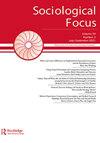Blaming the Victim, the Bystander, the Perpetrator, or the Institution: Student Allocation of Responsibility for Sexual Assault when Programming Hypothetically Varies
Q2 Social Sciences
引用次数: 0
Abstract
ABSTRACTGuided by theories of socialization and just policy theory, we explore how students allocate blame when sexual assault prevention programming hypothetically varies, net of the effects of evaluators’ traits. Using a survey instrument containing a series of vignettes, we ask whether university students’ (N = 254) perceptions of responsibility attributed to victims, perpetrators, bystanders, and university administrators varies by hypothetical program trainee and also by the hypothetical implementation of any program versus no program. Findings indicate that students allocate more blame to bystanders and perpetrators when hypothetical programming includes bystander training but that programs that train victims are not associated with increased victim blaming. Administrators are blamed less when bystander intervention is included in programming. However, compared to when no training is hypothetically implemented, students allocate more blame to victims and bystanders when any programming is present and less to administrators. Among respondent-level controls, victim blaming is consistently predicted by evaluators’ rape myth acceptance. Implications for future work, theoretical development, and policy are discussed.KEYWORDS: Interventionjust policy theorypreventionsexual assaultvictim blaming AcknowledgmentsThe authors wish to thank Dr. Mellisa Holtzman, Dr. Ellen Whitehead, Meagan Brant, Tom Henry, and Olivia Anderson for their assistance with this project.Disclosure statementNo potential conflict of interest was reported by the authors.Additional informationNotes on contributorsChadwick L. MenningChadwick L. Menning is professor and chair of the Department of Sociology at Ball State University. His research focuses on risk reduction among youths and young adults, including sexual assault and its consequences. He is interested in the application of empirical findings to the development of programming and social policies.Erica Dee FoxErica Dee Fox is a graduate of the Department of Sociology at Ball State University. She works as an adjunct instructor and academic advisor at Ivy Tech Community College in Muncie, Indiana, and a research assistant at Portland State University. Her research interests include disability studies, sexual assault prevention, and regional studies.Lex K. NunnLex. K. Nunn is a graduate of the Department of Psychology at Ball State University. His research focuses on death and dying, pet ownership, and gender and sexual minority diversity issues.指责受害者、旁观者、犯罪者或机构:当程序假设不同时,学生对性侵犯的责任分配
摘要在社会化理论和公正政策理论的指导下,我们探讨了当性侵犯预防规划假设发生变化时,学生如何分配责任,以及评估者特质的影响。使用包含一系列小插曲的调查工具,我们询问大学生(N = 254)对受害者、肇事者、旁观者和大学管理人员的责任的看法是否因假设的项目受训者以及假设实施任何项目与不实施任何项目而有所不同。研究结果表明,当假设的项目包括旁观者培训时,学生将更多的责任分配给旁观者和肇事者,但培训受害者的项目与增加的受害者责备无关。当规划中包含了旁观者干预时,管理者受到的指责就少了。然而,与假设没有实施培训相比,当有任何编程时,学生将更多的责任归咎于受害者和旁观者,而将更少的责任归咎于管理员。在被调查者水平的控制中,受害者责备与评估者的强奸神话接受度一致。讨论了对未来工作、理论发展和政策的影响。作者要感谢Mellisa Holtzman博士、Ellen Whitehead博士、Meagan Brant博士、Tom Henry博士和Olivia Anderson博士对本项目的协助。披露声明作者未报告潜在的利益冲突。作者简介:schadwick L. Menning,波尔州立大学社会学系教授和系主任。他的研究重点是降低青少年和年轻人的风险,包括性侵犯及其后果。他感兴趣的是将实证研究结果应用于规划和社会政策的制定。Erica Dee Fox毕业于波尔州立大学社会学系。她在印第安纳州曼西的常春藤科技社区学院担任兼职讲师和学术顾问,并在波特兰州立大学担任研究助理。她的研究兴趣包括残疾研究、性侵犯预防和区域研究。Lex K. NunnLex。K. Nunn是波尔州立大学心理学系的毕业生。他的研究重点是死亡和临终,宠物所有权,以及性别和性少数群体多样性问题。
本文章由计算机程序翻译,如有差异,请以英文原文为准。
求助全文
约1分钟内获得全文
求助全文

 求助内容:
求助内容: 应助结果提醒方式:
应助结果提醒方式:


